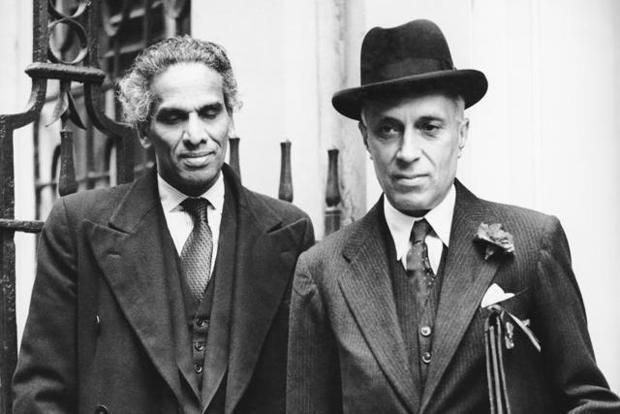After independence, the work of shaping India’s foreign policy fell upon the shoulders of Nehru. At that time, it was perceived that Nehru’s persona will carry the weight of the Indian dreams and India will receive its rightful place in the world. After the death of Sardar Patel, Nehru was the torch bearer in the turbulent times especially in the era of cold war. Indian leaders entrusted Nehru to represent India at world forum but Nehru’s leaning towards his favorite cost India dearly. At the time of independence, India needed a strong foreign policy in order to carve out its place in the geopolitics. V. K. Krishna Menon was appointed as high commissioner in London office. Krishna Menon was bent towards left ideology. Time magazine described him as a “crotchety, Mephistophelean” figure. U.S. president Dwight D Eisenhower characterized him as a “menace… governed by an ambition to prove himself the master international manipulator and politician of the age.” VK Krishna Menon was one person who, while remaining under the wings of Nehru, could be considered as the person who probably defined the “Leftist” leanings of our foreign policy and betrayed India’s cause with his links to Soviets and the Chinese.
As a close-confidante of Prime Minister Nehru, Menon shaped India’s Foreign Policy in the early years of Indian independence. His staunch anti-Imperialism and anti-Colonialism borne out of his involvement in the freedom struggle against Britain earned him much derision from the West. He was termed ‘Nehru’s Evil Genius’ and India’s Rasputin. Despite these unflattering sobriquets, he had the ears of Prime Minister Nehru and just after India’s Independence was appointed as the High Commissioner to Britain in 1947. During his UK days, Krishna Menon was involved in the “Jeep Scandal”, which was the first attempt by an Indian politician (then a bureaucrat) to weaken the Indian Defense Forces for personal gains or to serve his ideological master in the east. The Jeep scandal happened when Pakistan attacked Kashmir in 1947 just after the independence. Menon embarrassed Nehru by delivering substandard jeep for the Indian army.
Menon was a staunch advocate of Non alignment movement, an ironic, soviet leaning bloc against the cold-era bloc politics. Because of the policy of NAM, US turned its back on India and that cost India in strengthening itself. The personal distaste of Menon towards Bloc politics was one of the key driving factors in the creation of Non-Alignment movement which was essentially led by Menon on Nehru’s behalf. Menon staunchly advocated his opposition to Nuclear Proliferation. Despite Nehru’s ambiguous views on Nuclear Weapons and Homi Bhabha’s support for developing India’s Nuclear Capabilities, Menon’s influence in India’s political establishment can be credited as a failure in nuclear policy and which took India backwards. Menon’s burning hatred for the West and in particular for the US was an important factor in Nehru’s decision to reject President’s Kennedy’s offer of UNSC seat.
He was a Minister without Portfolio in Nehru’s Cabinet and was appointed Defense Minister in 1957, which ultimately became his undoing after the humiliating defeat of India in Sino-Indian War of 1962. Just before the war, Menon had instilled the family member of Nehru in the army and left real concerns unnoticed. Braj Mohan Kaul was appointed as commander of NEFA (Today’s Arunachal), Kaul had no battle experience and was opposed by the army General Thimmaiya but his opposition went unheeded and India had to face its first defeat after independence.
Both Nehru and Menon had a very intricate relation. Nehru relied way too much on Menon in foreign relations. Nehru knew that Menon is a drug addict and could leak sensitive information and despite that he continuously gave him unwarranted support. The shifty, shady personality was of much concern to other Indian leaders. Sardar Patel even sent a spy to London to keep an eye on Menon’s activity. He was a controversial figure yet Nehru created political space for him. If it was not for Menon, India’s foreign policy would have been radically different. The details gathered by MI5 files lay to rest some suspicions that have hovered around Krishna Menon for decades, while they confirm his psychological flaws, controversial financial dealings, and leftist associations. After all the debacles and controversies, Nehru kept his confidence in Menon, which cost India in its crucial years. It can be said that during Nehru’ s tenure India has already lost its midnight hour dream because of Nehru and his politics of favoritism.
